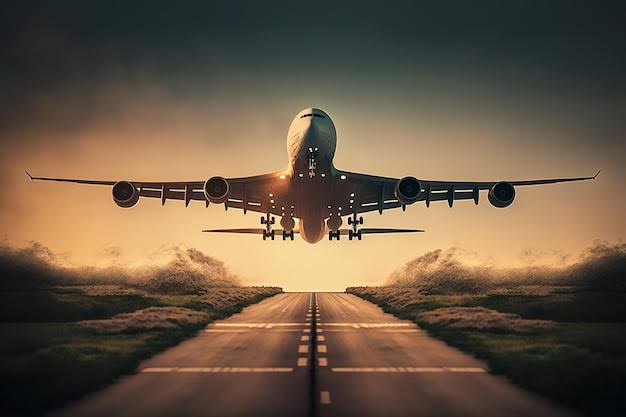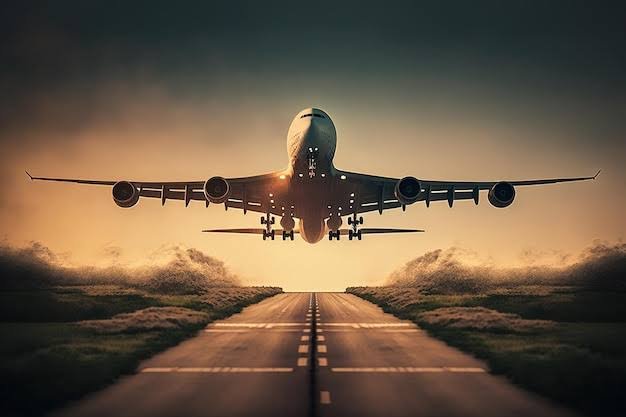Saturday, July 5, 2025

The strike by French air traffic controllers has caused a second day of widespread disruption to European skies, significantly impacting travel as the summer holiday season ramps up. The industrial action, which began on Thursday, continued into Friday, with a wave of flight cancellations affecting hundreds of thousands of travelers across Europe. The French air traffic controllers, represented by two unions, have called for the strike in response to issues including chronic understaffing and management practices that they describe as “toxic.” Their actions have had far-reaching consequences for both French and European air travel, adding further chaos during the peak vacation period.
On Friday, the scale of the disruption became even more pronounced than the previous day, as more than 1,100 flights either arriving in or departing from France were cancelled. In addition, hundreds of flights that were scheduled to fly over the country were also impacted. The French capital’s airports, in particular, experienced the brunt of the strike’s effects. Paris airports faced severe delays and cancellations, with travelers spending long hours trying to figure out alternative flight options. The timing of the strike was particularly critical, coinciding with the final day of school in France, just as many people were preparing for their summer vacations.
The cancellations at Paris airports were part of a broader pattern of disruption across the country. Airports in other French cities, such as Nice, also experienced significant cancellations. In Nice, for example, the airport reported that 200 flights had been cancelled on Thursday, with an additional 220 cancellations on Friday, affecting an estimated 50,000 passengers. With so many flights disrupted, travelers were forced to contend with long delays and uncertainty about their travel plans. Some passengers, like Sabrina Taristas, a 42-year-old woman who was set to fly to Toulouse, expressed their frustration but understood the reasons behind the strike, even though it was still a significant inconvenience for travelers.
The French civil aviation authority, DGAC, reported that 1,125 flights were cancelled on Friday, a marked increase from the 933 cancellations on Thursday. The impact of the strike was not limited to France itself. The stoppage by French air traffic controllers also affected flights flying over French airspace, causing additional cancellations across Europe. According to the European Airlines for Europe (A4E) association, it was expected that the strike would result in the cancellation of approximately 1,500 flights in Europe on both Thursday and Friday, affecting around 300,000 passengers. These disruptions have created a domino effect, leading to significant delays and cancellations on international flights that were scheduled to pass through French airspace.
The French government condemned the timing of the strike, which coincided with the peak travel period for many holidaymakers. Prime Minister François Bayrou expressed his disapproval, stating that the strike was “taking the French hostage.” He pointed out that the action was affecting not only French citizens but also the millions of people traveling across Europe. Transport Minister Philippe Tabarot echoed these sentiments, calling the strike “unacceptable” and adding that it was causing significant disruption for travelers. He noted that while the strike was only being carried out by a minority of air traffic controllers, the effects were far-reaching, impacting hundreds of thousands of passengers.
The strike was called by UNSA-ICNA, the second-largest labor union in the French air traffic control sector, which voiced concerns about the understaffing in air traffic control and the introduction of a new clocking-in system. The union also cited outdated equipment and what they described as “toxic management practices” as additional reasons for their protest. The third-largest union, USAC-CGT, joined the action, but the SNCTA union, the largest in the sector, did not participate in the strike. The air traffic controllers’ actions were not merely a local issue, as their protest extended beyond France’s borders, affecting flights traveling across the entirety of European airspace.
The European Airlines for Europe (A4E) association, which represents several major airlines, was quick to criticize the strike. A4E chief Ourania Georgoutsakou called the actions of the French air traffic controllers “needlessly disruptive,” arguing that the strike would unnecessarily impact the holiday plans of thousands of people both within France and across Europe. The strike led to severe delays across European airspace. According to A4E, the strikes caused nearly 500,000 minutes of delay across 33,000 commercial flights on Thursday alone. The total impact of the strike on European air travel has been substantial, with major airlines like Ryanair, Europe’s largest by passenger numbers, forced to cancel over 400 flights. Ryanair’s CEO, Michael O’Leary, urged the European Union to intervene and ensure that flights over France are protected from such strikes in the future.
Ryanair’s CEO criticized the lack of EU protection for flights passing through French airspace during strikes, claiming that approximately 350 of the 400 cancelled Ryanair flights would not have been affected if overflights were shielded by European legislation. This points to a larger issue of how air traffic control strikes in one country can have ripple effects on international air travel, with little recourse for airlines and passengers in such situations.
Schiphol Airport in Amsterdam, one of Europe’s busiest, also felt the effects of the strike. On Friday, approximately 30 flights at Schiphol were cancelled due to the disruptions caused by the French air traffic controllers’ actions. The airport spokesperson confirmed that the cancellations were a precautionary measure to ensure that passengers could be properly managed and rebooked onto alternative flights, where possible.
As the strike continued into Friday, passengers across Europe faced difficult decisions about how to navigate the disruptions. Many found themselves scrambling for alternative travel arrangements, with hotels and other services in major tourist destinations like Paris and Nice reporting increased cancellations. In Paris, for example, the UMIH hotel and restaurant union noted that many travelers, particularly those flying into or out of the city’s major airports, had canceled hotel bookings due to the uncertainty caused by the strike. Veronique Siegel, a spokesperson for the UMIH union, described the situation as chaotic, noting that “there’s a bit of panic among those arriving and those leaving.” Siegel further explained that airlines were doing their best to rebook passengers, but the situation was complicated, and the cost of handling such widespread disruption would be significant for both airlines and local businesses.
The strike by French air traffic controllers, which was due to end on Friday evening, caused massive headaches for travelers. However, it was expected that no further disruptions would occur on Saturday, as the strike was scheduled to conclude. Nonetheless, the aftermath of the strike will likely continue to affect European air travel for some time as airlines and passengers work to recover from the widespread cancellations and delays. The ongoing challenges highlight the delicate balance between labor rights and the need for reliable, uninterrupted air traffic control services, especially during the busy summer travel season when millions of people are relying on timely flights to begin their holidays.
In conclusion, the strike by French air traffic controllers has had a profound impact on air travel across Europe. The disruptions caused by the strike have affected not only passengers flying to and from France but also those traveling across European airspace. With more than 1,100 flights cancelled on Friday alone, the strike is an example of how industrial actions in one sector can create widespread chaos for travelers and the broader economy. As the strike comes to an end, the hope is that air travel in Europe will return to normal, but the lessons learned from this event may prompt calls for better protection of overflights in the future to prevent such widespread disruption from occurring again.
«Enjoyed this post? Never miss out on future posts by following us»

